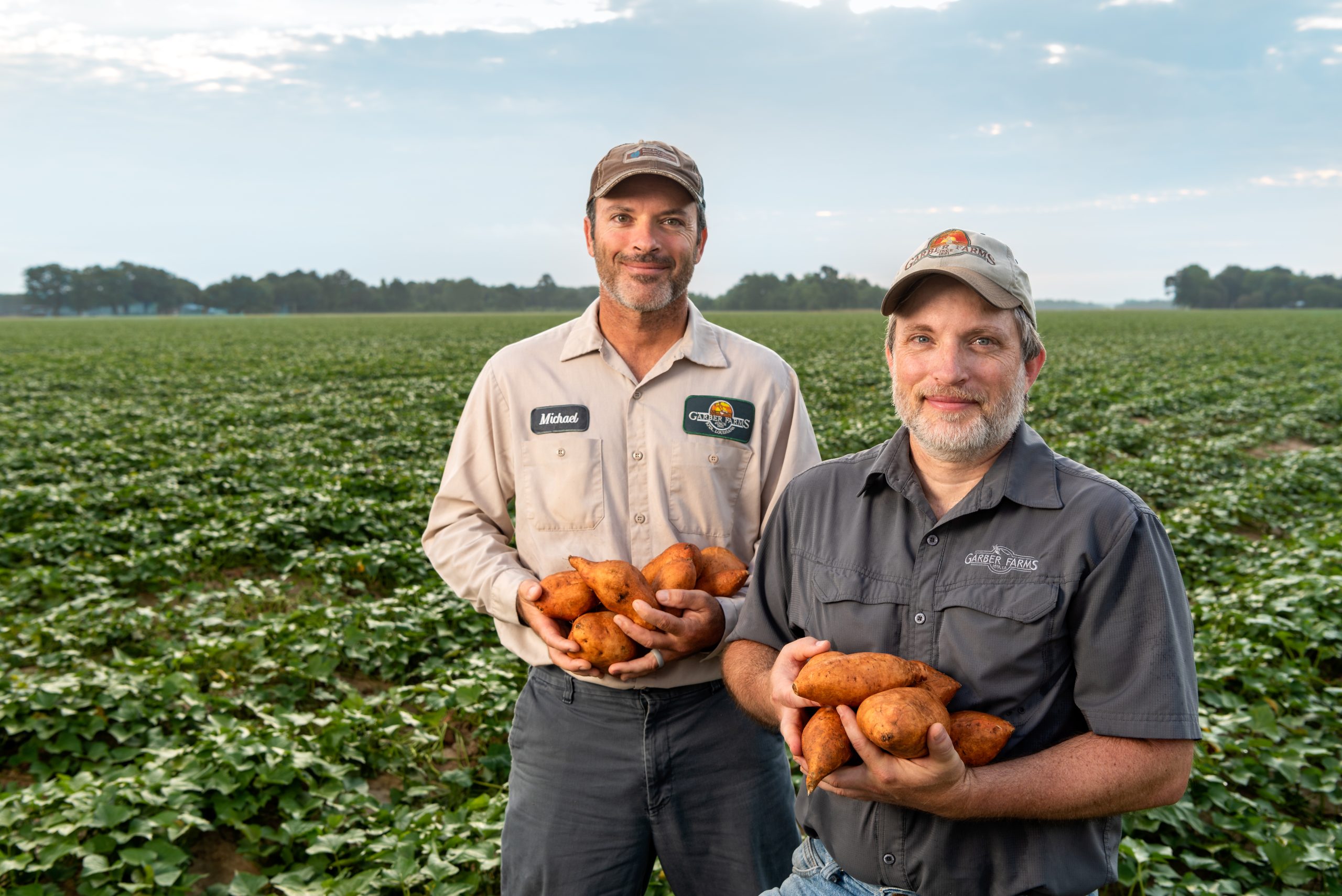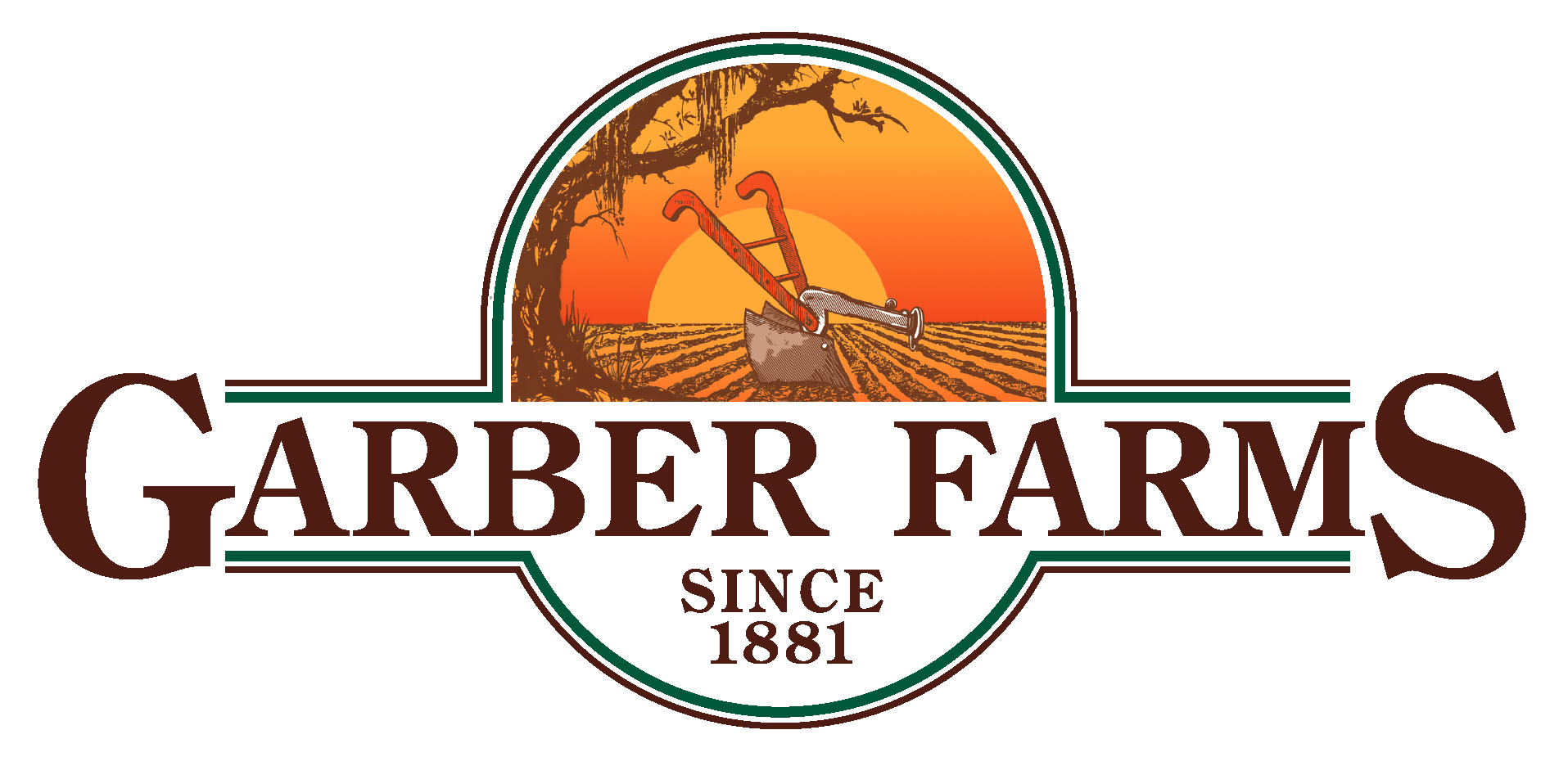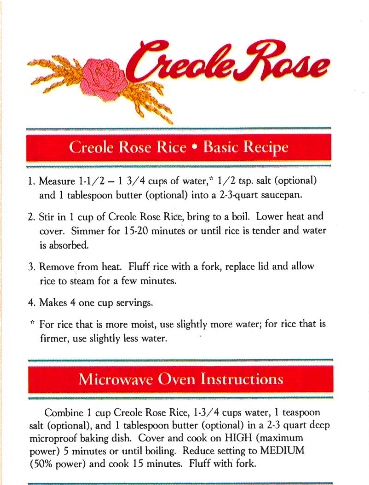About Garber Farms
The Garber Story
Our farm consists of 5,000 acres of land with sweet potatoes, rice, soybeans and various cover crops being grown in rotation.. The sandy loam textured soil in our location promotes the production of a smoother, cleaner and brighter skinned sweet potato superior in its eye appeal than those produced in other areas.

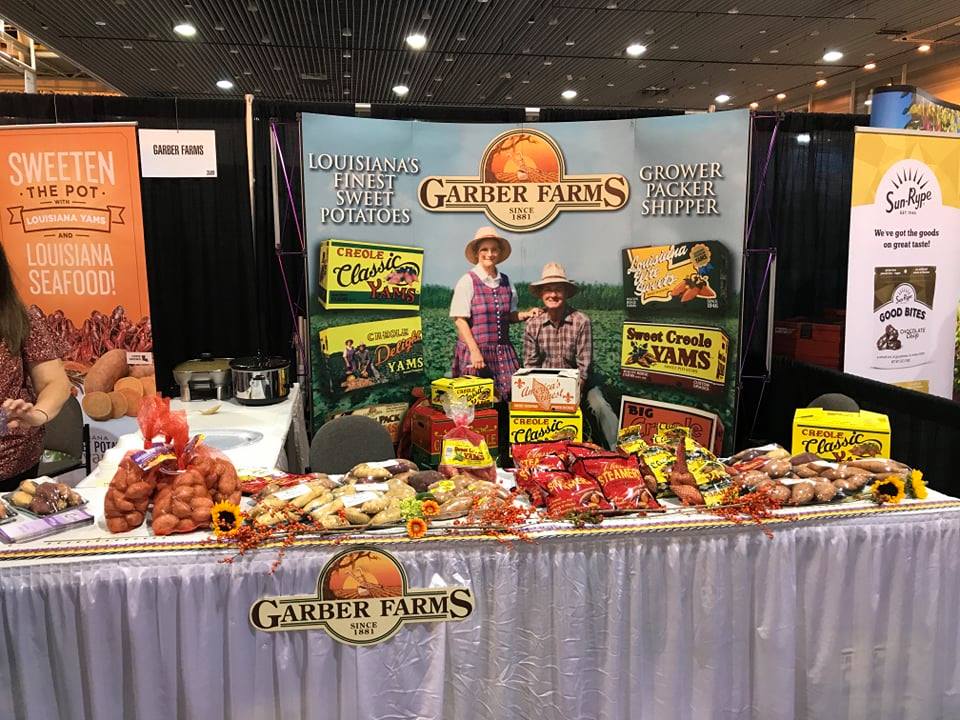
Family Matters To Us
We have continued to reinvest in the business by modernizing and upgrading the storage and packing facilities. Our state-of-the-art equipment means our products will always be shipped on-time and in the best condition.

Thank You!
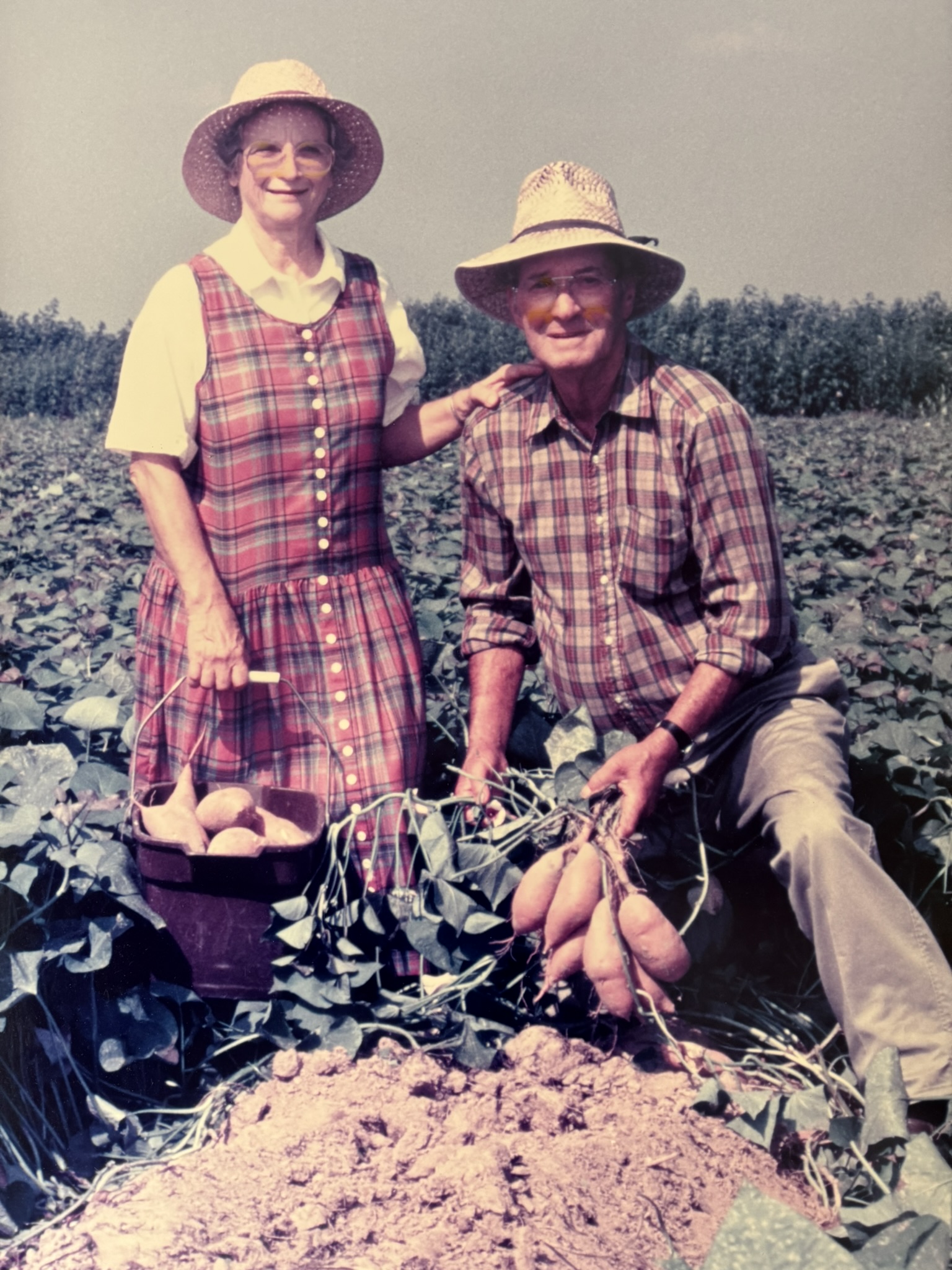
Walter & Eula Garber
Walter and Eula Garber were third generation farmers in the Lafayette, Louisiana area. They owned and operated a dairy farm from 1948 to 1977. It was then they sold their dairy herd and joined their oldest son, Wayne Garber, in the Iota, Louisiana area to begin a new crop farming business. In 1978, the first Garber Farms crop was produced. In 1979, a second sibling, Earl, joined Wayne and Walter. Earl remained a part of the Garber Farms partnership until 2001, when he sold out his share to Wayne’s sons, Matthew & Michael. Over the past 23 years, Garber Farms has grown to become an industry example of a family operation with value added processing and marketing dimensions.
Wayne & Glenda
Wayne and Glenda are fourth generation farmers. Wayne received his Batchelor of Science degree in Agricultural Business from the University of Southwestern Louisiana and a Masters of Science degree in Agricultural Economics from Louisiana State University. After spending five years in the United States Air Force, he returned to Louisiana and became Assistant Manager of St. James Sugar Cooperative in June of 1974. In December of 1977, Wayne and Glenda, along with their three sons, left St. James, Louisiana to begin a new crop farming enterprise to be known as Garber Farms.
Glenda was able to complete her college requirements for a degree in Early Childhood Education. She taughe kindergarten and was then chosen to start the first Pre-Kindergarten in Acadia Parish. In 1991, she left her teaching career to join Garber Farms as Office Manager. After their sons, Matthew and Michael, became partners of Garber Farms in 2001, they eventually obtained full ownership of and continue to operate Garber Farms while Wayne and Glenda continue to serve in an advisory capacity.
